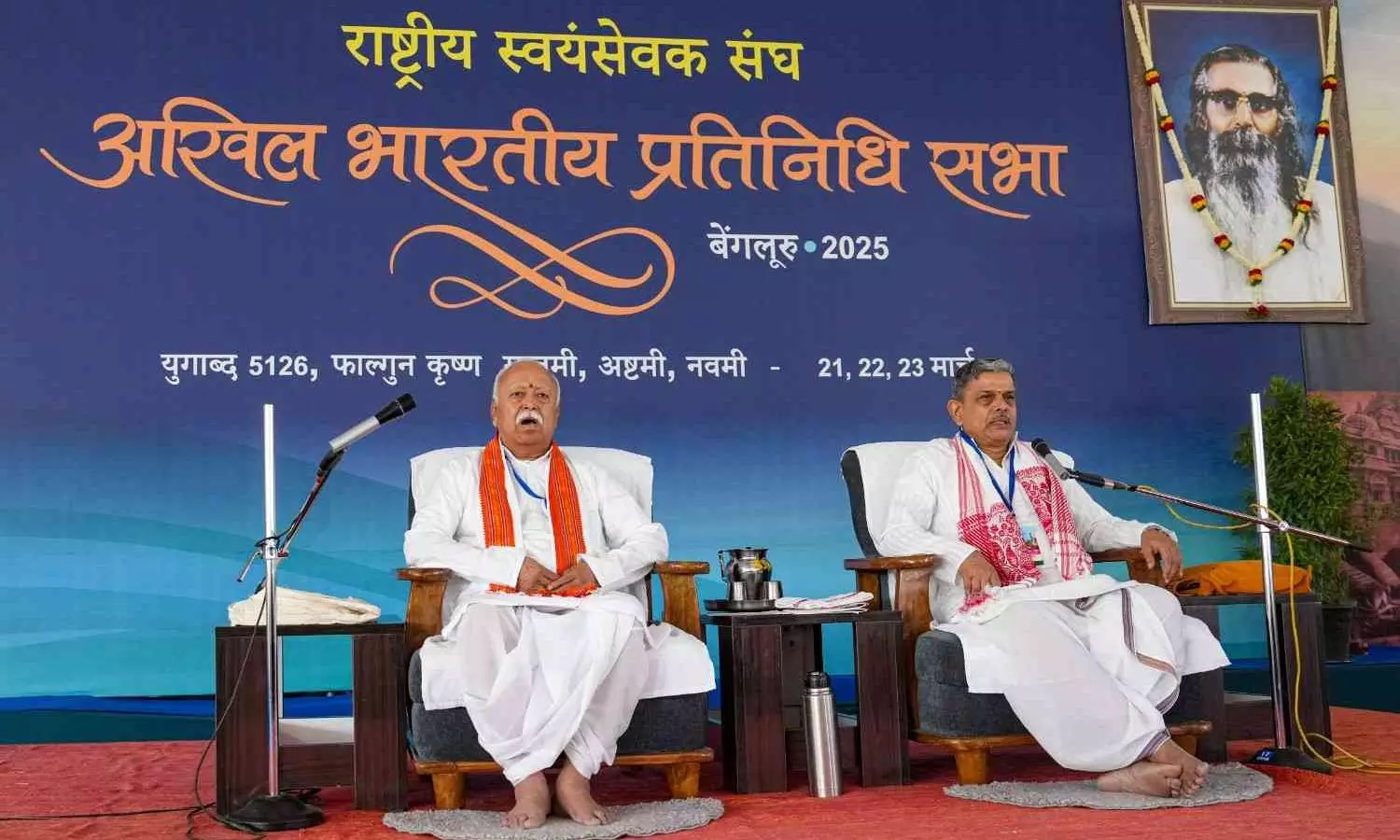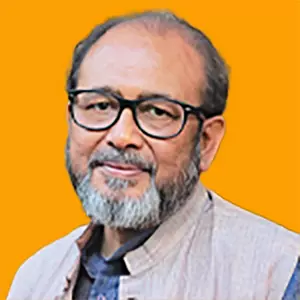
- Home
- India
- World
- Premium
- THE FEDERAL SPECIAL
- Analysis
- States
- Perspective
- Videos
- Sports
- Education
- Entertainment
- Elections
- Features
- Health
- Business
- Series
- In memoriam: Sheikh Mujibur Rahman
- Bishnoi's Men
- NEET TANGLE
- Economy Series
- Earth Day
- Kashmir’s Frozen Turbulence
- India@75
- The legend of Ramjanmabhoomi
- Liberalisation@30
- How to tame a dragon
- Celebrating biodiversity
- Farm Matters
- 50 days of solitude
- Bringing Migrants Home
- Budget 2020
- Jharkhand Votes
- The Federal Investigates
- The Federal Impact
- Vanishing Sand
- Gandhi @ 150
- Andhra Today
- Field report
- Operation Gulmarg
- Pandemic @1 Mn in India
- The Federal Year-End
- The Zero Year
- Science
- Brand studio
- Newsletter
- Elections 2024
- Events
- Home
- IndiaIndia
- World
- Analysis
- StatesStates
- PerspectivePerspective
- VideosVideos
- Sports
- Education
- Entertainment
- ElectionsElections
- Features
- Health
- BusinessBusiness
- Premium
- Loading...
Premium - Events

Since the BJP has to engage in the realm of realpolitik, it has to position itself as a practitioner of fair play and not discriminate based on the religious identity of citizens
RSS general secretary Dattatreya Hosabale’s call for a “review” of the terms – ‘secularism’ and ‘socialism’, and thereafter possibly push for removing these two definitive characteristics of India from the Preamble of the Constitution of India, if pursued by the organisation vigorously, has the potential to jeopardise the BJP’s carefully balanced applecart of paying lip-service to the idea of secularism while practising divisive and majoritarian politics.
Also read | SC junks pleas challenging inclusion of ‘socialist’, ‘secular’ in Preamble
An organisation, which at the finalisation and adoption of what Prime Minister Narendra Modi terms as “India’s only Holy book”, was extremely dismissive and critical of it in 1949-50, is now ironically calling into question these two self-defining words from the Preamble because “these words were not included...by Dr Babasaheb Ambedkar, the architect of our Constitution”.
Admiration for Ambedkar?
At one level, this outpouring of love and admiration for Dr. Ambedkar by the top executive of the RSS mirrors its politics of appropriation, under which various national icons have been presented as their own, despite being opposites during the icon’s lifetime.
On the other hand, the words of Hosabale, which could not have been used without prior deliberation within the RSS top brass, reflect deep-seated discomfort (and disagreement) of the organisation and its leadership with secular as well as socialist ideologies.
This in turn, is indicative of the ultimate objective of the Sangh Parivar to eventually transmogrify India from an avowedly modernist secular nation that guarantees justice, liberty and equality to every citizen while also promoting fraternity “among them all”, into a Hindu Rashtra where much of this will be undermined or even non-existent for vast sections of people.
Tricky terrain for BJP
There exists little dissonance within the saffron brotherhood on these crucial issues. Since the BJP has to engage in the realm of realpolitik, it has to position itself as a practitioner of fair play and not discriminate based on the religious identity of citizens.
It is a paradox that the BJP successfully mainstreamed itself and emerged as a credible political party in the late 1980s, only by riding piggyback on the Ram Janmabhoomi agitation, a movement specific to the Hindu community and which was waged by the RSS co-affiliate, Vishwa Hindu Parishad (VHP).
However, from the early 20th century, with the rise of the Indian national movement, the forces wedded to the idea of inclusive nationalism gathered strength and dominance at the expense of the exclusivist view.
It has to be recalled that throughout the almost decade-long stir for a Ram temple in Ayodhya after demolishing the Babri Masjid, the BJP took pains to portray the demand as “genuinely secular”.
Advani’s role
The then BJP president LK Advani had been the primary leader to articulate the BJP’s political vocabulary and he re-introduced the term ‘pseudo-secularism’, used as a derogatory label for the Sangh Parivar’s adversaries and their politics. Simultaneously, he also claimed that the BJP practised “genuine secularism”, although what this word combination alluded to was never specified.
Also read | Secularism not a western import, but part of Constitution’s basic structure: SC
Advani’s contentions underscored the long-held realisation of Hindu majoritarianism advocates that there was little agreement among Indians on the idea of nationalism and nationhood in India, especially from the mid-19th century, with the gulf between these two perspectives widening after the anti-British uprising in 1857.
However, from the early 20th century, with the rise of the Indian national movement, the forces wedded to the idea of inclusive nationalism gathered strength and dominance at the expense of the exclusivist view.
Idea of Gandhian Socialism
This was particularly manifest from the 1920s till the independence of India, in the character of the freedom struggle and the fact that despite articulating the two-nation theory, neither the Muslim League nor the Hindu majoritarian organisations and parties like the RSS and Hindu Mahasabha, could secure majority support of the two main religious communities in India.
It has to be borne in mind that at the time of Partition, significant sections of Muslims chose to continue living in India and did not migrate to Pakistan. Even before, not all Muslims had endorsed the Muslim League’s call for a separate Pakistan.
Likewise, an overwhelming number of Hindus cohabited with the Muslims despite their religious and at times, cultural divergences.
It was because of this realization that when the Bharatiya Janata Party was established in April 1980, it adopted the idea of Gandhian Socialism as its primary credo.
Greater acceptance of Hindutva
Even when this was replaced in 1986 with the treatise of Integral Humanism, it has to be kept in mind that Deendayal Upadhyaya, who delivered this as a series of lectures, did not spell out Hindu-centrism as the nation’s goal or character.
It is true that there is today greater acceptance of the idea of Hindutva than before with Modi being the prime mover for this change. Although this change can be traced back to the early years of the 21st century, especially after the Gujarat riots in 2002 and when this phenomenon first became visible in that state, Modi too chose to veil his words while donning the cap of a person holding a constitutional office.
Also read | In 11 years of Modi rule, India has got an unusual version of democracy
From 2002 onward, if his most provocative or divisive speeches were recounted, only rare ones would have been delivered as the chief minister of Gujarat, or the prime minister of India.
Modi as rhetorical politician
Whether it was his undeniably hate-filled speeches during the electoral campaign of 2002 when he termed most infamously refugee camps as “baby producing factories” or the communally charged speeches delivered during the 2024 Lok Sabha polls, were occasions when he enacted the role of the rhetorical politician seeking votes which remains his principal objective.
Importantly, Modi realised even before stepping into office that certain issues, ideas and objects were non-negotiable for the majority of Indians and this included not just the idea of being secular (genuinely or otherwise), but most importantly Parliament and the Constitution in its present forms too.
He did not repeat the error made by the previous BJP-led government of ordering the “review” of the Constitution which caused uproar and the plan had to be modified to merely a “review” of it.
Very crucial amendments have been made to the Constitution in the Modi era, most notably the Citizenship Amendment Act which in a particular context, makes grant of Indian citizenship dependent on religious identity, thereby going against a basic tenet of the nation. But at no point has there been any conversation about changing the Constitution.
Ongoing RSS-BJP power tussle
Modi replaced the colonial-era Indian Penal Code and Criminal Procedure Code by depicting them as moribund documents of the British-ruled period.
He can be expected to lend weight to Hosabale’s idea only if he senses that an overwhelming section of Indians are no longer averse to alteration in the Preamble. But, even then, it will not be ‘his idea’ and he is not known to pursue proposals made by anyone else.
Further developments on the RSS idea to drop ‘secularism’ and ‘socialism’ from the Constitution will reveal if this move is part of the ongoing power tussle between Modi and the RSS leadership, which has held up the matter of choosing the next BJP president.
Symbolic value yet crucial
However, whether India is described in the Preamble as secular or socialist has little role in shaping the nation’s character. It is not that India was not secular before the Emergency, or that India did not pursue some form of egalitarian policies.
Also read | Bhagwat's speech signals RSS doesn't accept the present Constitution
Whether or not India remains secular and socialistic, depends not so much on its inclusion or exclusion, of the most cited part of the Constitution, but on the orientation of party-based politics.
At best, these two words in the Preamble as modified during the Emergency by Indira Gandhi have symbolic or ornamental value.
But, quite clearly, this is one idea around which the narrative is not just going to develop but will also have a significant impact on the country’s political course.
(The Federal seeks to present views and opinions from all sides of the spectrum. The information, ideas or opinions in the articles are of the author and do not necessarily reflect the views of The Federal.)


